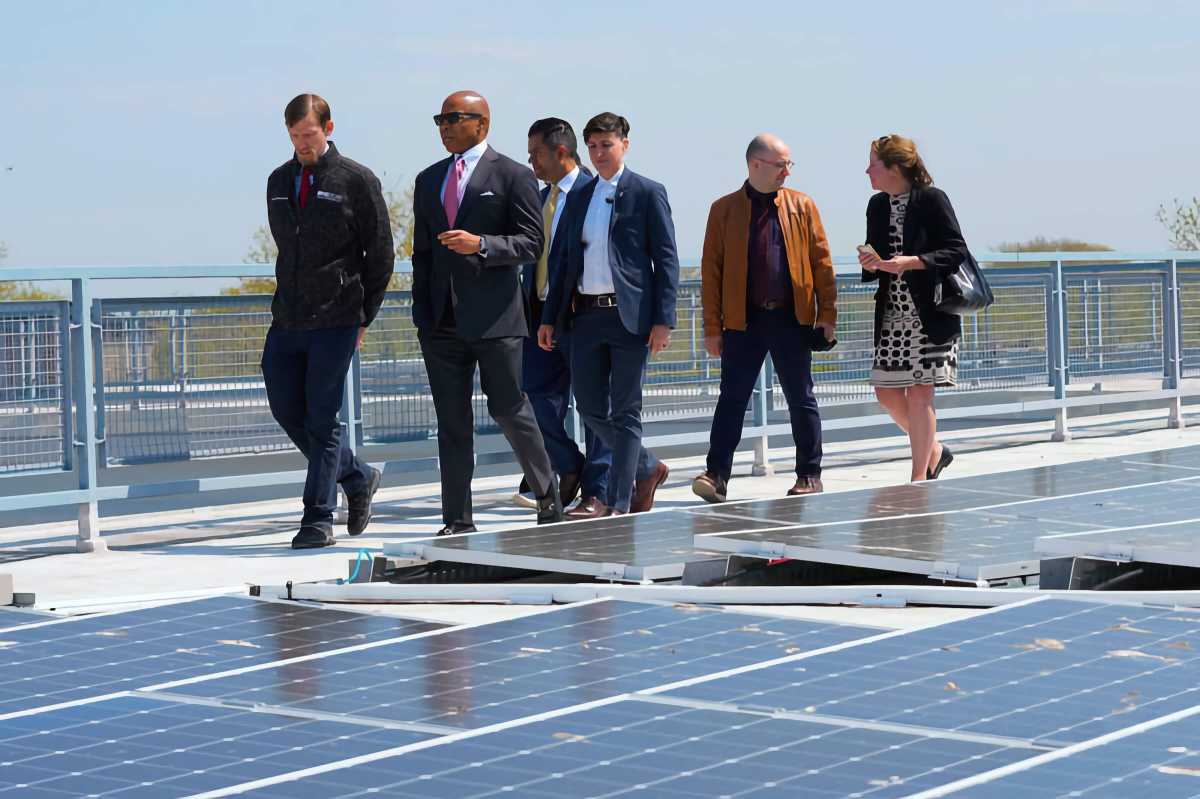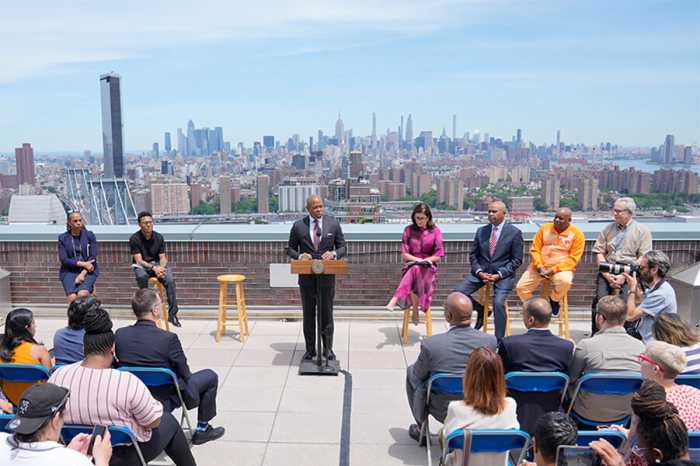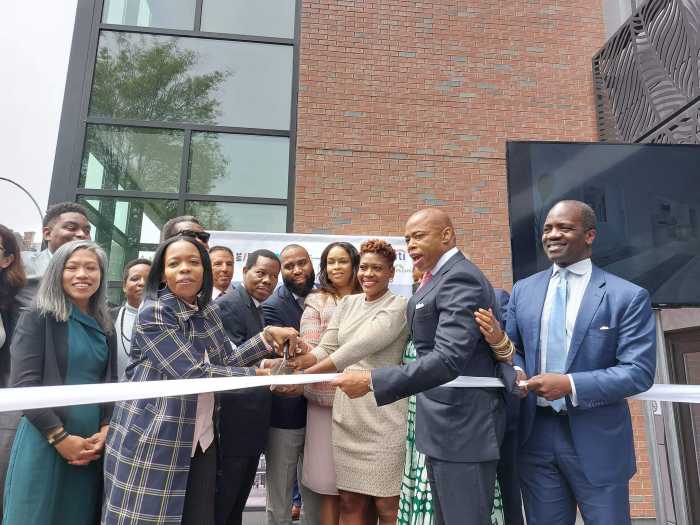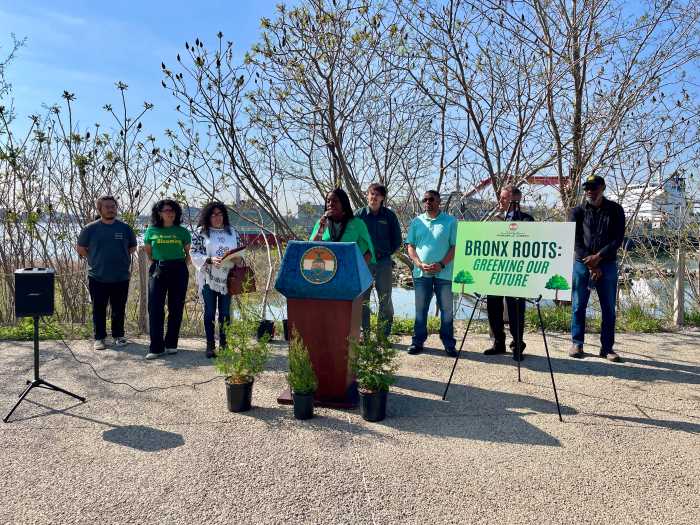New York City Mayor Eric Adams on April 20 released PlaNYC: Getting Sustainability Done, New York City’s long-term strategic climate plan that highlights efforts the city is taking to protect New Yorkers from climate threats, improve quality of life, and build the green economy.
This is the fifth in a series of climate plans released every four years by the city, as required by local law, and was developed with input from the New York City Climate Cabinet, which consists of representatives from more than 35 city agencies and offices, the Sustainability Advisory Board, and stakeholders.
Actions in the plan specifically focus on execution and implementation, delivering on promises made to New Yorkers, and creating an equitable, healthy, and resilient future. PlaNYC: Getting Sustainability Done also highlights opportunities to leverage available state and federal funding sources, and comes in tandem with calls from Mayor Adams to ensure New York City receives its fair share of federal and state funding.
“We’re in this together, we will get through this together, and I am so proud of the work we are doing to protect our city, Mother Earth, and all New Yorkers from the effects of climate change,” said Mayor Adams. “New York City has already taken major steps to become more sustainable, resilient, and equitable, including breaking ground on the Lower East Side Resiliency Project, passing Local Law 97 to reduce building emissions, and rapidly electrifying our city’s fleet, which is already the greenest in the nation. But we are just getting started.
“Today, we are taking these efforts to the next level with PlaNYC: Getting Sustainability Done, which will increase resilience, protect our infrastructure, and save lives,” he added. “This plan is about making sure our seniors can afford an air conditioner and their monthly utility bill to keep cool during increasingly hot weather, providing opportunity for our young people to get the education and training they need to become part of the new green economy, and making sure all New Yorkers have an opportunity to drive an electric vehicle, put up solar panels, or retrofit their home, no matter where they live or work.
“We have so much to be proud of and so much to protect, and PlaNYC will create a cleaner, greener, more just city for all,” Adams continued.
“Today’s release of the ‘Get Stuff Done’ PlaNYC is a win for a greener, healthier, and safer city,” said Deputy Mayor for Operations Meera Joshi. “Since the start of this administration, New York City has opened the city’s first all-electric school building, broke ground on the Brooklyn Bridge-Montgomery Coastal Resilience project, completed a $50 million sewage and water main overhaul to improve drainage in Southeast Queens, and issued a Clean Construction executive order to reduce construction emissions from city projects. Today, we are taking action to take polluting vehicles off our streets, offer more affordable renewable energy options, put our trash to work, and lower our emissions from every major source — buildings, transportation, and food. Thank you to Mayor Adams, Chief Climate Officer Aggarwala, Director Charles-Guzman, and the climate leaders throughout New York City for advancing an action plan that meets the demands of the moment.”
“With PlaNYC: Getting Sustainability Done, we will deliver a safer, more resilient city to New Yorkers, improve our quality of life, and ensure we have the best-trained green workforce in the world,” said First Deputy Mayor Sheena Wright. “And we will put people first — especially those who have borne the brunt of climate change. I’m excited to work with my colleagues across government to get New Yorkers the climate solutions we deserve.”
“PlaNYC is crucially important to New York City’s future, said Deputy Mayor for Economic and Workforce Development Maria Torres-Springer. “This plan sets a road map for how we can more quickly and meaningfully meet some of the most pressing challenges of climate change and, at the same time, expand the green economy, foster innovation, build new industries and create more and better jobs for tens of thousands of New Yorkers. For example, new industries such as offshore wind will create jobs and deliver a new, clean, sustainable energy source that will power the transition to a fossil fuel-free economy.”
“I am proud of PlaNYC, which not only addresses the urgent challenges facing our planet, but also reflects our commitment to integrating sustainability into our strategic priorities,” said Chief of Staff Camille Joseph Varlack. “By implementing this plan, we are taking bold steps towards a more sustainable future, and I am confident that our collective efforts will make a meaningful impact in preserving our planet for generations to come.”
“Just 15 years ago, many people considered climate change a scientific theory. Today we know our climate is changing so rapidly that we must take immediate action to protect all New Yorkers,” New York City Chief Climate Officer and New York City Department of Environmental Protection (DEP) Commissioner Rohit T. Aggarwala. “This plan lays out what we are doing to combat climate change on all fronts — making our buildings more energy efficient, reducing waste and transportation emissions, creating and storing renewable energy, and creating a new coastal resiliency division to protect the five boroughs from more intense storms and the worst effects of climate change.”
“This is a PlaNYC that threads public health, quality of life, and environmental justice throughout its initiatives and re-focuses climate work beyond decarbonization and adaptation,” said Mayor’s Office of Climate & Environmental Justice (MOCEJ) Executive Director Kizzy Charles-Guzman. “More accessible and well-maintained green spaces, healthier waterways and wetlands, cleaner and safer streets, healthier food and air, and thermal safety indoors will improve and save human lives today, even as we continue to adapt for the climate risks of the future. This work will also have global repercussions as one of the world’s largest economies — New York City — tirelessly acts to mitigate its own impact on our planet.”



























